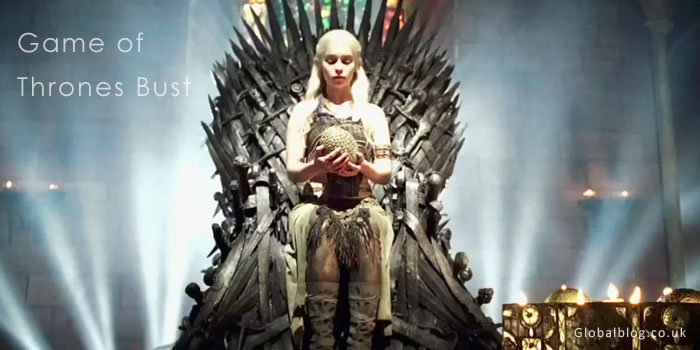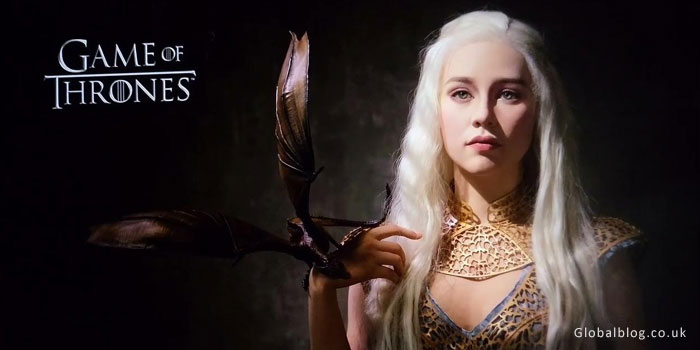Introduction to the Gaming Era
The gaming world has evolved into a colossal force, shaping how we interact with stories and characters. At the heart of this transformation lies an iconic series that has captivated millions: Game of Thrones Bust. This fantasy epic didn’t just take TV by storm; it created ripples across various mediums, including video games. The allure of Westeros reached beyond screens, inspiring a vibrant community and sparking intense debates about its narrative choices.
As players immerse themselves in this realm through interactive gameplay, they find themselves not just as spectators but as participants in the unfolding drama. The Game of Thrones bust — spectacular collectibles that encapsulate beloved characters — serve as tangible reminders of this cultural phenomenon. Let’s dive deeper into how the gaming era intertwines with this legendary saga and explore its lasting impact on pop culture and entertainment today.
The Rise of Game of Thrones
The rise of Game of Thrones Bust marked a pivotal moment in television history. Based on George R.
R. Martin’s series, it captivated audiences with its intricate plots and morally complex characters.
From its premiere in 2011, the show quickly gained traction. Viewers were drawn into the Seven Kingdoms, where power struggles and epic battles unfolded.
Each episode was a visual spectacle that pushed production values to new heights. The combination of high fantasy elements and gritty realism created an immersive experience.
Characters like Jon Snow and Daenerys Targaryen became household names overnight. Fans invested not just in the storyline but also in the fates of their beloved heroes and villains.
As seasons progressed, anticipation grew exponentially for each installment — leading to global phenomena like “Watch Parties.” This fervor solidified Game of Thrones Bust as more than just a show; it transformed into a cultural event that resonated deeply across diverse demographics.
Impact on Pop Culture and Entertainment Industry
The impact of Game of Thrones Bust on pop culture is undeniable. It transformed the way fantasy narratives are perceived and consumed. The show brought a level of sophistication to storytelling that captivated audiences.
Characters like Jon Snow and Daenerys Targaryen became household names, influencing how we discuss heroism and morality in modern media. Their journeys sparked debates across social platforms, creating a community around shared experiences.
Moreover, iconic moments from the series seeped into everyday conversations, memes, and parodies. This cultural penetration extended beyond casual viewers to academics analyzing its themes.
Game of Thrones Bust also reshaped the entertainment industry’s approach to adaptations. Producers now recognize the potential for complex stories drawn from literature to attract vast audiences worldwide. Its success redefined expectations for future television series and films within the fantasy genre.
Merchandise and Fan Community
The Game of Thrones Bust phenomenon sparked a treasure trove of merchandise. From intricate action figures to stunning replicas of iconic weapons, fans found ways to bring their love for the series into everyday life.
Merchandise ranges from high-end collectibles to quirky items like themed mugs and apparel. Each piece tells a story and connects fans to the world created by George R.
R. Martin.
Beyond products, the fan community flourished. Social media platforms buzzed with discussions, theories, and artwork inspired by the show. Fans united in conventions that celebrated their shared passion.
This vibrant community has fostered creativity, leading to countless fan-made projects—from artworks to storytelling expansions that explore characters’ backgrounds further.
Engagement doesn’t just stop at consumption; it thrives on collaboration and interaction among fans around the globe. The bond formed through shared interests highlights how deeply embedded Game of Thrones Bust has become in popular culture.

Influence on Television and Streaming Services
Game of Thrones Bust reshaped the landscape of television and streaming services. Its colossal success prompted networks to invest heavily in high-quality, serialized storytelling. The intricate plots and character depth set a new standard for what audiences expect.
Streaming platforms took notice quickly. They recognized that viewers were hungry for more immersive content, leading to a surge in original programming. Series like “The Witcher” and “House of the Dragon” emerged, borrowing elements from the fantasy genre made popular by Game of Thrones Bust.
Binge-watching became a cultural phenomenon as fans sought to consume entire seasons at once. Streaming giants capitalized on this trend by releasing full seasons simultaneously, catering to an audience eager for uninterrupted viewing experiences.
The series also sparked interest in spin-offs and adaptations across various formats. This has encouraged creators everywhere to explore expansive worlds with complex narratives that draw audiences back for more adventures.
Controversies and Criticism
Game of Thrones Bust has faced its share of controversies since the beginning. Fans have often debated character arcs, particularly in later seasons. Many felt that key figures received rushed conclusions that didn’t align with their established narratives.
The portrayal of violence and sexual content sparked discussions about morality in media. Critics argued it glamorized brutality while others defended it as a reflection of the brutal world George R.
R. Martin created.
Additionally, the ending divided audiences sharply. While some praised its boldness, many expressed disappointment over plot resolutions.
Behind-the-scenes decisions also drew scrutiny, especially regarding diversity and representation within the cast and crew. These concerns prompted conversations about inclusivity in modern storytelling.
Such debates reflect a broader cultural conversation about what we consume as entertainment today. The game’s impact extends beyond enjoyment to challenge norms and provoke thought among viewers across the globe.
Future of Gaming-Inspired Content
The future of gaming-inspired content holds immense potential. With technology advancing at a rapid pace, the boundaries between gaming and traditional media continue to blur.
Innovative storytelling techniques are emerging. Video games now offer narratives that rival those found in movies and television. This trend invites more adaptations from popular franchises like Game of Thrones Bust.
Virtual reality (VR) and augmented reality (AR) will play crucial roles as well. These technologies promise immersive experiences that draw players deeper into their favorite worlds. Imagine stepping into Westeros or participating in epic battles firsthand.
Collaborations between game developers and filmmakers are on the rise too. Expect to see unique partnerships that blend gameplay with cinematic storytelling.
As audiences crave fresh experiences, interactive content will lead the way. Gamers want engagement, not just passive viewing, which could reshape how stories are told across platforms moving forward.
Conclusion:
The Gaming Era has undeniably reshaped how we interact with stories and characters. The rise of Game of Thrones Bust not only transformed the television landscape but also sparked a new wave of gaming culture. Its impact on pop culture is still palpable, influencing countless media formats, from games to books.
As merchandise continues to thrive and fan communities grow more passionate, the fervor surrounding Game of Thrones Bust remains unmatched. This excitement extends into streaming services that are eager to capitalize on this phenomenon by offering content inspired by beloved franchises.
